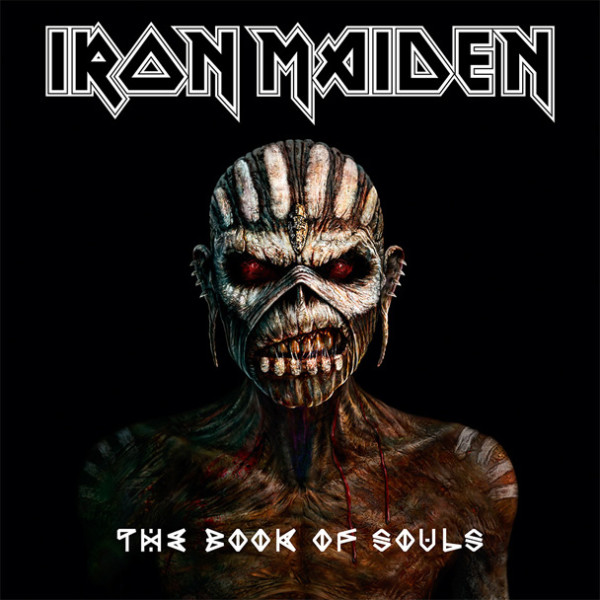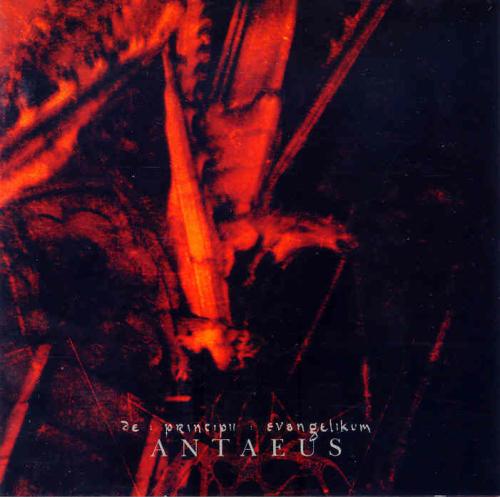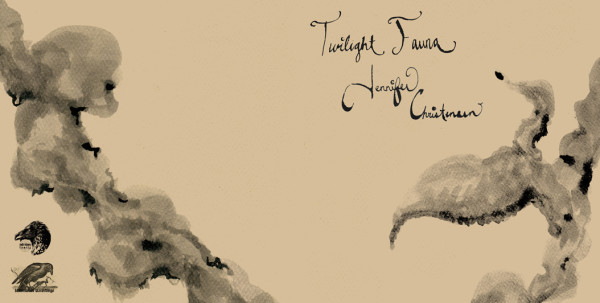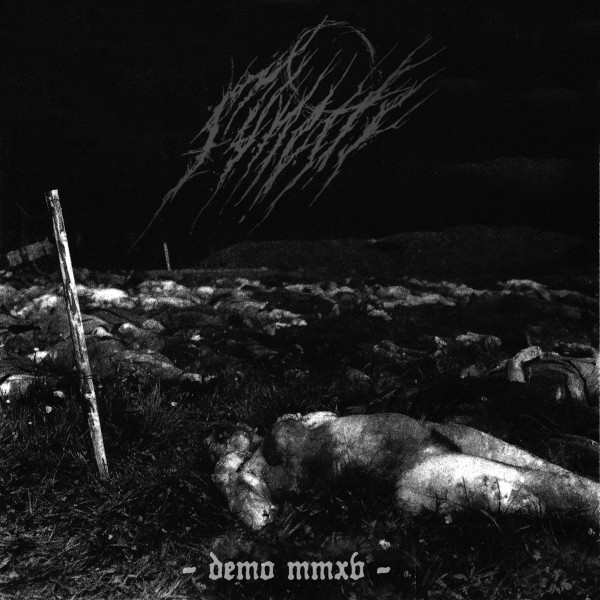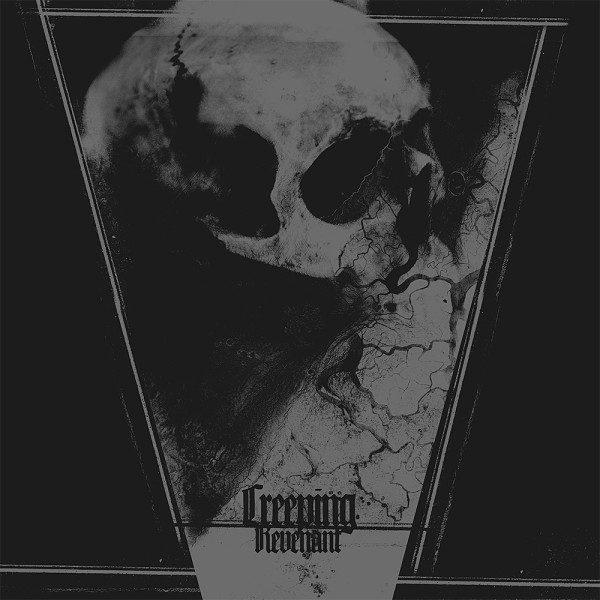
More unworthy garbage keeps coming our way, the splatter pattern created after all the filth has hit the surface behind us is put into words in our Sadistic Metal Reviews.

Reverie – Bliss (2015)
With a band name like Reverie and a seemingly ironic album title like Bliss you might have expected postmodern post-indie shoegaze hipster black metal to roar and pounce at you like an enraged kitten, but luckily, we are met with something at the very least resembling a lion here; pity this one just so happens to not be the king of the jungle.
In homage to the oldest Bathory-tradition, we find Reverie struggling to bring hardcore punk and ominous metal harmonics into a vileful matrimony. Where Reverie, like most other modern exploits of this scheme fail, is in the insistence on very low-brow hooks and plodding “anti-cosmic” disharmonics which only further leads the listener astray from whatever good basic riff the song was initially edified around. Acoustic interludes and vapid diversity in riffs can’t overshadow the monotony that all songs eventually end up in – Imagine a less successful and inspired newer Autopsy, and you’d be close to what the songwriting sounds like for the most part.
There are shining, spirited moments, but if this band is to evolve beyond the hordes of Katharsis-clones, they still have years of sadistic refinement to come.

Arvas – Black Satanic Mysticism (2015)
If there’s something the modern black metal scene likes to fawn over, it’s music with empty calories -Excellent riffs, delectably prepared into a concoction without any lasting impressions. Black Metal has at this point made it into the realms of nostalgia, and genre-pandering releases such as this one clearly proves this. The music found here clearly harkens back to the glory days of the Norwegian early 90’s, but are so firmly entrenched in their own sentimentality that they miss the original explorative spirit of the genre.
Nothing on here is offensive, as background-music it is highly soothing and comforting for anyone already introduced into the genre, since it is so highly conscious not to disrupt its conventions. If you’re the kind of person that likes Choco Puffs for breakfast rather than a swordfight with your mortal enemy to the death, then this release might just be the one for you.

Dystopia Nå! – Dweller on the Threshold (2015)
What else does the modern underground cherish? High-functioning blenders. The ingredients aren’t all that important, as long as the blend is interesting and “unique”. Once we taste the results after the blend, we’ll go into denial over its real flavours, and instead gaze at the moon as it reflects our own ego shining bright ëíIím the only one who understands this! This is the new wave!íí
What is Dystopia Nå!? It’s Screamo and Nu-metal of the 2000’s with instrumentation and lacing from De Mysteriis Dom Sathanas. Ironic, depressive quotes rumble through the wall of sound and powerless anguished screams echo through chuggy deathcore breakdowns, but neither of these elements hold any gravitas whatsoever, even for the most unscrupulous of hipsters. Like all other depressive black metal/rock, this is professional duping of young indie girls into the new “edgy” trend. No soothing ëartfulí piano-interludes or post-rock guitars could save this abomination. Avoid.

Harrow – Fallow Fields (2015)
Some bands don’t even know how to be subtle and mask their blatant source-material. Harrow is a pure rip-off of more successful atmospheric/post-rock black metal bands, and it becomes obvious from the very first seconds of the first track.
If you have heard Agalloch, Kroda and Drudkh, you have heard the instrumental ingredients of this release, but never before has someone managed to achieve this level of tedium in the faux-ambient genre. Pass this one up, and you’ll get some extra time to listen to Hvis Lyset Tar Oss instead.
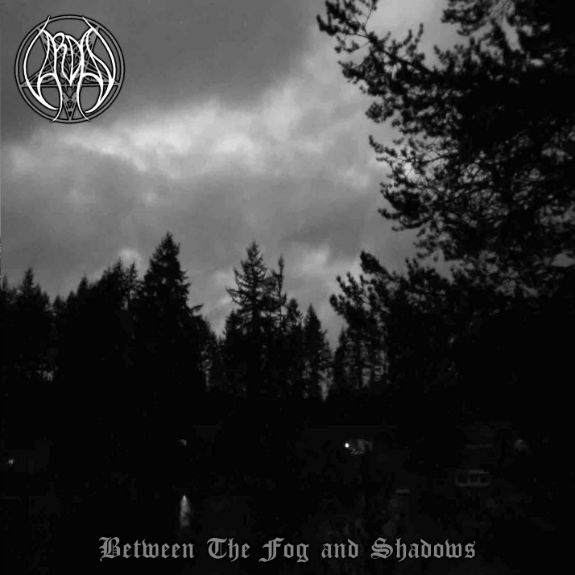
Vardan – Between the Fog and Shadows (2015
Droning minor chords for minutes on end, replete with “catchy” piano and synth-“bloops” akin to a new-wave pop band. The dominant theory in our contemporary music scene is that this drivel was conjured up by the evocative gloom of Burzum, but there we must vehemently disagree. This is a spawn of the same old ego that spawned Grateful Dead, Opeth and Liturgy, this time merely slapped unto a production that they think would sell with the lower echelon of the black metal hordes; incapable of distinguishing a duck from an ostrich. It worked ten years ago, and we’re still seeing bands such as Vardan cashing in on the plastic underground credibility to this day.

Trials – This Ruined World (2015)
The instrumental performance of Pantera amalgamated with metalcore production and composition, sprinkled with the most basic uninspired Metallica-worship gallop and Sepultura breakdown. What do we get? Imagine a cake concocted by a skilled chemist lacking any taste buds. Technically, it’s proficient, but the emperor wears no clothes, and even the most passing glance at this record might confirm this. I’m sure these fellows think their murky, crusty chugs mixed with catchy melodic death metal riffs and pop choruses was a top notch idea to get all the chicks on the beach, but I assure them that for this atrocity they’ll receive only personal embarrassment in the future.
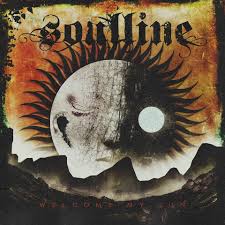
SoulLine – Welcome My Sun (2015)
At some point in the mid-to-late 90’s, the term melodic death metal, once the moniker used for bands using the death metal labyrinth-riff through leitmotifs of recognizable melodies more so than percussive grounding, became usurped by the most twee of electro-pop bands, grunge-rejects and the burgeoning modern screamo and post-hardcore genres.
The band might define itself as a melodic death metal band, but one would be hard-pressed to find any differences in this material from your typical screamo/crunkcore-band. A band like Attack Attack will have the same moronic, oversimplified Pantera-grooves, monotone, emotionless vocals, random disco drums and pop structures with a slaphappy yet indignant “mad-at-father” choruses. The only differing elements are the chunkier metal production and the fact that there are a few more listless harmonies in the breakdowns. Melodic death metal is a sham, it has nothing to do with death metal, and just about anything labelled this after 1995 is a marketing ploy to get both the listless Cannibal Corpse-fans who will gobble up anything death metal-related for the “br00tal” street cred and the emo kids who’ve had enough of the bullying at school into bands like this in this putrid, yawn-inducing horror of a genre.
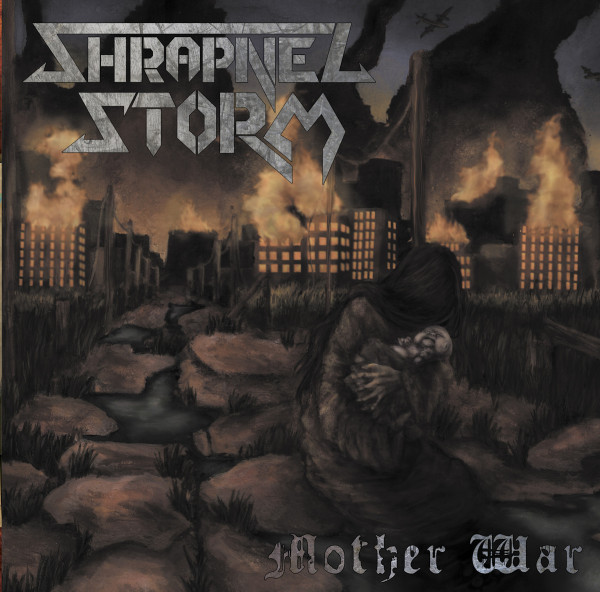
Shrapnel Storm – Mother War (2015)
Looking at this record superficially we see the image of a forsaken mother clutching a decayed baby as though it was all that was left for her in her life. The Apocalypse is raging all around in an urban environment and the future is bleak. This imagery has a striking resemblance to what crust punk constantly portrayed.
This is no accident. One of the bases for the Swedish death metal sound which this Finnish band pursues was this Discharge/Amebix-influence. The Stockholm HM-2 Boss guitar sound was the natural evolution of the bass-driven, gritty rasp that could be heard on Amebix releases as early as 1983’s Winter. Shrapnel Storm’s idea on how to elaborate on this legacy is to strip back the evolution of Swedish Death Metal one step further into the lost realm of Crust-bleakness where monotony and desolation rules. This is a valid endeavour and the result does predictably come off similar to a modernized, groovier version of what Deviated Instinct and Bolt Thrower did in the late 80’s.
There’s only one vital flaw: The music isn’t very engaging and hearkens back to Wolverine Blues and Welcome to the Orgy more than it does Left Hand Path and Arise!. Rather than exploring the ambiance that could be found in both of these genres when played with expertise, in actual content, Shrapnel Storm for the most part makes this seem like just another mediocre death-n-roll record rather than the potential their sound actually might possess.
If they drop the simple bluesy riffs, focus on the monotone but engaging crusty riffs, play around with song structures more you might actually find a worthwhile record from these guys sometime in the future, but for now, it’s not salvageable and we’re left with dull and mediocre riffs that go nowhere but straight into the bin.
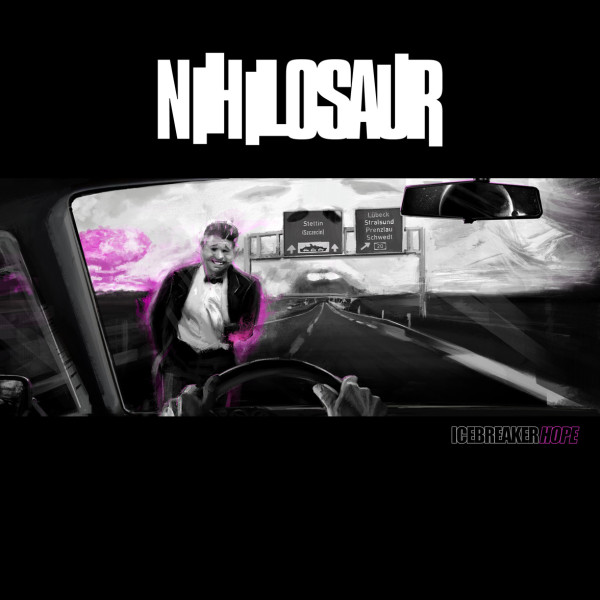
Nihilosaur – Icebreaker Hope (2014)
Reminiscent of the overtly artsy post-death metal bands in Finland after the countries initial boom of creativity died out, this band tries to take death metal in an interesting direction, but ends up sounding like a mediocre Sludge Metal band with no clear direction on how to escape the forest of their own design.
Loud, buzzing bass-distortion and peculiar, sometimes Godflesh-like guitar-notes screech in the distance. But no one will listen, except for their mothers who assure that they’re as special and unique as ever. The main differing factor between Godflesh or other quirky but successful bands like Carbonized and this is ultimately the fact that Nihilosaur merely know how to take you on an obscure journey through industrial film noir-visuals, but then leave they leave you with no satisfying conclusion. It starts and ends with a vortex of randomness where listlessness is king.
This is the Mulholland Drive of death metal, it wishes it was Voivod or other narrative bands, but for this fairytale, the narrator has long been asleep at the wheel, never to be found again. Good riddance.

Minority Sound – Drowner’s Dance (2015)
Did you ever want Marilyn Manson with a bit more EBM, injected with leftover riffs from Megadeth Risk album to then be spiced with movie soundtrack electronic orchestras, desperately trying to inject some novelty into the tween-metal? No? You elitist bigot!
The band is definitely more instrumentally competent than most in the industrial metal genre but like other novel bands like Babymetal the music is pop music on steroids, disguised as an ironic, competent “new” take on metal. If the fair is too expensive for you but you still want that roaring deluge of incomprehensible, meaningless sounds and images to barrage before your senses and this might be just right for you.
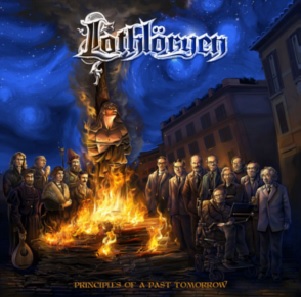
Lothlöryen – Principles of a Past Tomorrow (2015)
The trouble with the modern power metal genre is its overwhelming mediocrity, where the bulk of the music sounds like pop music on speed conjured up by the high from their own auto-effluvial sniffings. It is truly a rare gift to see anything even resembling what Iron Maiden could achieve with the beginnings of this sound in the mid-80ís. But that’s Is a story for another time.
This isn’t utterly horrific by modern power metal standards, it’s just so average that it could be any tired Blind Guardian-influenced attire shuffling through the fog for an original approach to songwriting that isn’t copy-pasted from an early Helloween album. The occasional EBM interlude and gimmicky parody of a Celtic major-driven song-and-dance isn’t doing this already stillborn record any favours – the only favour I can ask of the band members to do for themselves would be to stop wasting valuable plastic on this insipid tripe. That, or move to Finland, join a Polka-troupe and finally kill themselves.

Crown – Natron (2015)
Indie rock will always find new aesthetic means to plague us and infest any worthwhile medium of creative composition. They will perpetuate Shakespeare’s legacy as if it were Comic Sans in their vain vision of art.
What does this new incarnation bring us? Well, the black rider in the night wears the robes of sludge/doom metal of the lowest caliber, laced with post-rock and industrial clichès. If you’re a fan of pseudo-prog of the last decade but would like it artsier, “spiritually deeper”, more Agalloch-infused and Rammstein-attuned, then this might be for you. Mind you, you would have had to have lost your taste buds ages ago if you find that sounding remotely palatable, so I’m sure you’ll gobble it up like a any fine happy meal from the garbage bin.

Locrian – Infinite Dissolution (2015)
As the album initiates its sonic onslaught, we are at first greeted with something resembling early Godflesh, but with a more derivative, flaccid production. Where will this lead us? I’ll tell you where, to post-rock and Wolves In the Throne Room-tedium. The industrial aesthetic attempt to hide the fact that this is the same tired quasi-ambient formula where emotionless “emotional” sounds roll unto the listener until a barrage of harmonic, almost Liturgy-like random melodic throwaways strikes as if it is the only path for the music to take, until it dies a tragic death in reflection of its own hubris.
This pattern is repeated throughout the entire record. It’s clear that they want to be Drudkh 2.0 and some of the slower melodies hold some meagre musical merit, but the approach and composition is botched with no saving grace to be found. Avoid or fall into oblivion, as is the fate of this album.
Credit where credit is due: The album title perfectly describes how focused the composition is on the record.

Sonick Plague – Street Wars (2015)
An 80’s speed metal band, forgotten by time and space, decide to make a new record almost 30 years after being out of business. One can wonder if anyone ever found their output special to begin with, as what we find here is something akin to early Megadeth without any substantial riff variation and a latter-day groove metal influence, pedalling in these similar motifs that don’t go much further than tying themselves up in a nice enough fashion. This is the barcode for mediocre, it might get them some high fives from their friends at the pub that they haven’t met since the late 80’s, but to the general public this is as forgettable as they come.
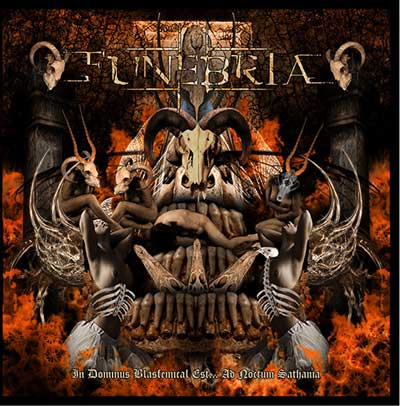
Funebria – In Dominus Blasfemical Est… Ad Noctum Sathania (2015)
Some bands are only after the lipstick and aesthetics. Funebria is a Venezuelan black metal band that despite their best efforts, come off as a modern melodic death metal/metalcore act with dynamics borrowed from Marduk and Cradle of Filth. They try their best to disguise this under raw, simplistic war metal lyrics and scene pandering, but for the discerning ear this is as vapid as the latest Dimmu Borgir albums, unfortunately for this album however, they lack even the instrumental proficiency of the latter. Let this abortion sink into the depths that their doted Ea might give them a final mercy kill so we might never hear such belligerently tedious music ever again.
Note: Oddly, this sounds like “Fun”+ “ebria” (drunk in Spanish).

22 CommentsTags: 2015, Arvas, Between the Fog and Shadows, Black Satanic Mysticism, Bliss, Crown, Dweller on the Threshold, Dystopia Nå, Fallow Fields, Funebria, Harrow, hipster bullshit, Icebreaker Hope, In Dominus Blasfemical Est... Ad Noctum Sathania, Infinite Dissolution, Locrian, Lothlöryen, metalcore, Mother War, Natron, Nihilosaur, piece of shit, poser metal, post-metal, Principles of a Past Tomorrow, Reverie, sadistic metal reviews, Shrapnel Storm, sludge metal, Sonick Plague, SoulLine, stinking shit, This Ruined World, Trials, vardan, Welcome My Sun, worthless scum
